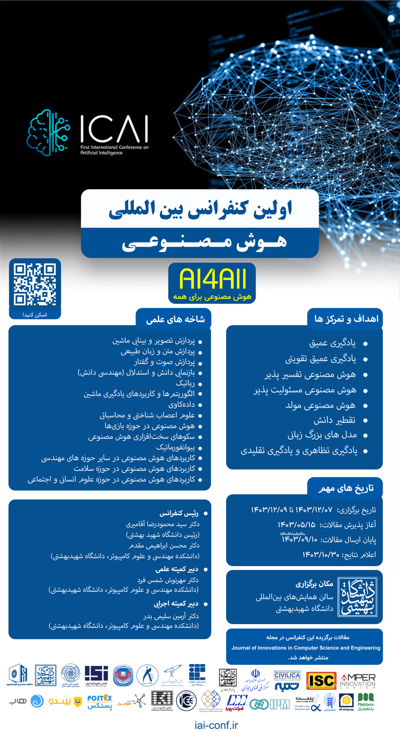0% Complete

نویسندگان :
کلمات کلیدی :
چکیده :
لیست مقالات بایگانی شده
Alireza Sharifi - Alireza Vafaeinejad
Sajjad Hashemian Meymandi - Mohammad Saeed Arvenaghi
Alireza Rezaei - Amineh Amini
Mohammad Amin Lotfi - Kimiya ٍEghbal - Fateneh Zareayan Jahromy
Sahar Farazi - Yasser Shekofteh
Ali Rahmanipur - Shakila Mohammadi
Melika Arabzadeh - Kimia Maleki - Bijan Bambai - Hossein Azad
Jaber Alavi - Mahmood Neshati
Amirali Abdolmaleki - Shima Mahboubi

